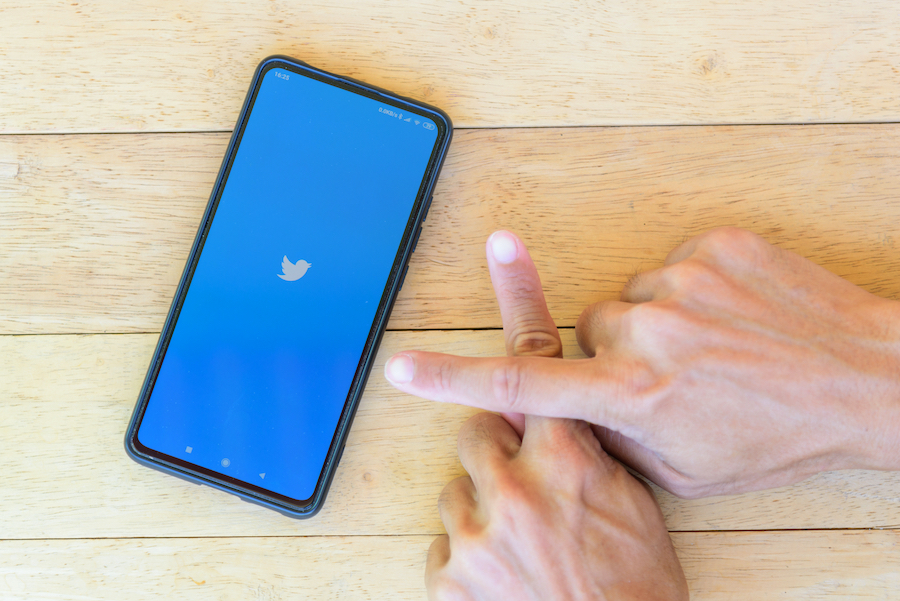In Brief: Confronting Twitter Falsehoods; Combating 'Zoom Fatigue'
By Greg Beaubien
June-July 2021
Confronting Twitter Falsehoods Might Make Matters Worse, Researchers Find
When Twitter users try to correct misinformation that other people post on the social media site, their efforts might backfire by lowering the quality of the original poster’s subsequent retweets, researchers at MIT have found.
According to a study called “Perverse Downstream Consequences of Debunking,” being publicly corrected by others makes social media users defensive and more partisan and shifts their “attention away from accuracy.”
The study chose 11 political claims, both liberal and conservative, that had been debunked by the fact-checking website Snopes.com. Researchers looked for people spreading those falsehoods on Twitter and then created “human-looking bot accounts” that sent public replies with polite statements such as “I’m uncertain about this article — it might not be true” and links to the Snopes pages.
David Rand, an MIT researcher and the study’s co-author, wrote, “What we found was that getting corrected slightly decreased the quality of the news people retweeted afterward (and had no effect on primary tweets).”
Popeyes Fast-Food Chain Publishes Racial Makeup of Its Marketing Teams
Popeyes Louisiana Kitchen has begun publishing statistics about the races and ethnicities of its marketing personnel, The Wall Street Journal reports. The fast-food chain said it would give preference to ad agencies that demonstrate a commitment to improving their diversity.
Popeyes’ first diversity scorecard says its agency teams are 49 percent white, 31 percent Hispanic, 8 percent Black and 7 percent Asian. Its internal marketing team is 50 percent white, 24 percent Hispanic, 15 percent Black and 12 percent Asian. (According to the U.S. Census Bureau, the overall U.S. population is 76.3 percent white, 13.4 percent Black, 18.5 percent Hispanic and 5.9 percent Asian.)
After the death of George Floyd in Minneapolis-police custody in May 2020, advertising companies began releasing information on the percentages of their employees who are Black or other people of color. Jerri DeVard, founder of the Black Executive CMO Alliance, said marketing departments often lead diversity efforts at their organizations.
Facing ‘Zoom Fatigue,’ Some Companies Limiting Video Calls
Live video meetings over Zoom and similar services have helped companies manage remote workforces during the coronavirus pandemic. But as CNBC reports, days filled with video calls have overwhelmed some organizations, which are now taking steps to reduce their numbers.
Banks HSBC and Citi have introduced “Zoom free” days when employees aren’t expected to be on video calls. Tech companies TikTok and Salesforce are limiting the number of video meetings their employees can hold.
Jeremy Bailenson, a professor at Stanford University, has been studying the effects of “Zoom fatigue” on workers. “Currently, the medium is designed to allow various forms of exhaustion and fatigue — socially, emotionally and physically,” he said.
According to Bailenson’s research, causes of video-call fatigue include “excessive eye gaze,” seeing yourself on a computer screen for many hours a day, being tethered to one physical location for extended periods of time and difficulty interpreting non-verbal cues.
Public Leaks Roil Apple’s Secretive Corporate Culture
At Apple, which is known for operating in secrecy, employees rarely speak to the media about the company’s culture.
But when the computer giant recently hired Antonio García Martínez — a former Facebook product manager who’d written a book about Silicon Valley that many found misogynistic — some female Apple employees publicly voiced their concerns on Twitter.
A group of Apple employees also wrote a letter calling for an internal investigation into García Martínez’s hiring, which was leaked to the tech-news site The Verge. García Martínez was later fired.
In May, a group of Muslim employees penned a note calling for Apple to release a statement in support of Palestine. When CEO Tim Cook didn’t respond, the letter was sent to media outlets.
The leaks of these letters mark a slow cultural shift at Apple. As The Verge wrote, “Employees, once tight-lipped about internal problems, are now joining a wave of public dissent that’s roiling Silicon Valley.”



